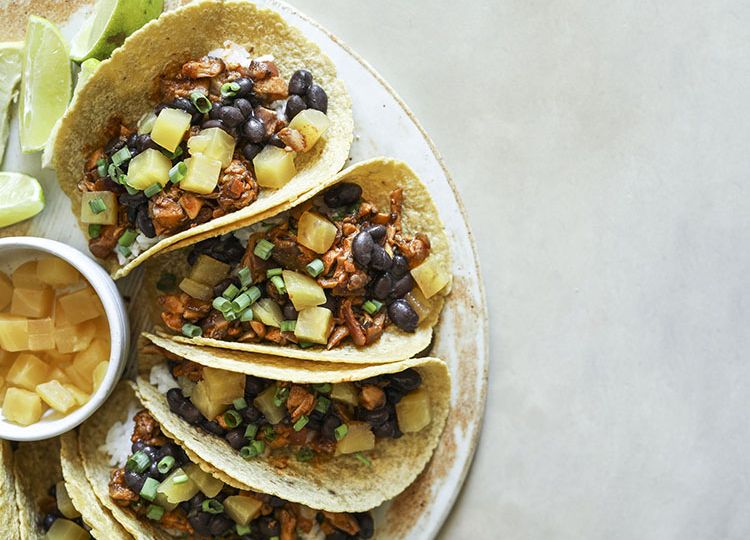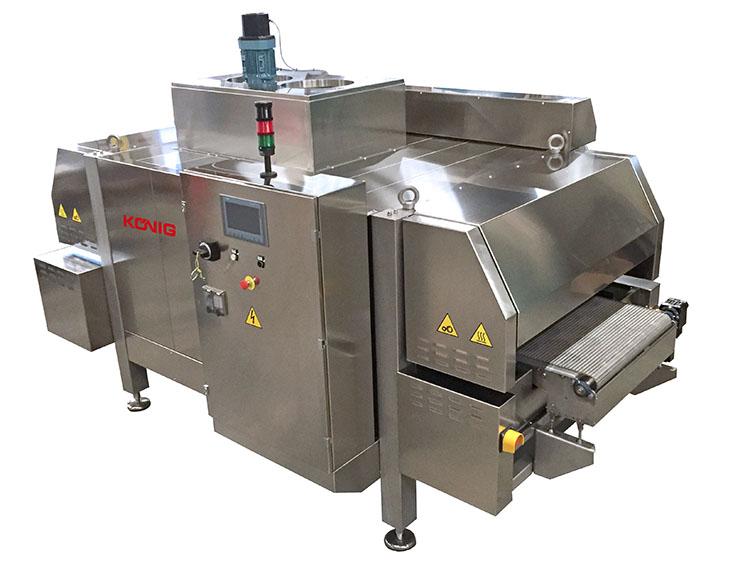
Mexican cuisine is also becoming increasingly popular in Central Europe. Burritos, wraps, tortilla chips and quesadillas are popular snacks, and are based on thin Mexican tortilla flatbreads.
Whereas its own Tortilla Industry Association has already existed in the USA for a long time, tortillas are also becoming increasingly popular in this country. Traditionally made from corn flour (maize flour), in Europa they are usually wheat tortillas.
The Austrian machine constructor König has already recognized this trend. Manuel Hobacher, the manager of König’s Customer Demonstration Center, says: “We see a trend towards the production of flatbreads such as pita, naan or tortillas, because there is a big demand among consumers for these types of bread. Bakeries can use them to considerably enlarge their product range, especially in the snack area.”
Out-of-house consumption is steadily increasing and is leading to consumers expecting to find snacks available at a wide variety of sales outlets, so Street Food is booming like never before. Expanding the range of snacks by adding tuna wraps, chicken tacos or avocado burritos can mean increased turnover for bakeries.
Technical equipment
Processing tortilla doughs can be implemented very well by using suitable technical equipment. König’s Manuel Hobacher explains: “Tortilla doughs are easy to process on dough sheeting lines. The challenge lies in making the dough pieces uniformly thin and circular. The key to this is gentle, stress-free processing of the dough sheet.”
König offers a system, the Menes-H dough sheeter, to allow the production of tortillas as well as bread rolls and breads on a single line.
The Menes-H high capacity plant can process up to 5,000 kg/hour of dough, and is expandable by adding various modules (e.g. a molding station, poppy strewer, punching and cutting tools, proofer). As well as pita and tortillas, the Menes-H offers a wide variety of products including breads, baguettes, bread rolls, ciabatta, toast-bread, pizza, hot-dogs, donuts, cakes, croissants and strudels.
Forming and shaping a thin, stress-free dough sheet is important for thin products such as tortillas. Stresses in the dough sheet cause tortillas to lose their typical circular shape and become oval. Therefore, gentle dough sheet forming from the very start is essential.
The heart of the dough sheeter are plug-in rollers with various surface textures which, according to the company, can process both firm and soft doughs. The company also says the dough sheeter is equally suitable for coarsely-pored ciabatta doughs with a long bowl resting period and a TA (dough hydration) of 185, and for finely porous lye roll doughs with a TA of 150.
Between the specially designed rollers, the dough sheeter creates a uniform, continuous dough sheet with a continuously adjustable dough sheet thickness. The rollers are specially arranged in such a way that the shaped dough sheet adheres to the rollers and is supported by the rollers to prevent it undergoing uncontrolled flow under its own weight. The pneumatic scraper separates the dough sheet from the rotating roller and deposits it onto a conveyor belt for further processing in the plant. As a result, the dough sheet is shaped very gently and free from stresses.
Due to the quick-change system with different widths, the various rollers can be used to set dough sheet widths from 240 to 600 mm. As a result of the accurate adjustment depending on product and weight, scrap dough can be reduced to a minimum

Double satellite head
The Twin Sat double satellite head is an essential component of every Menes plant – it gently reduces the dough thickness to produce a practically stress-free dough sheet. The double satellite head uses two satellite roller heads arranged one above the other to decrease the large mechanical loading. In this process, instead of being rolled when transported through the machine, the dough is brought to size by a high-speed striking movement.
To manufacture thin flatbreads such as tortillas, König recommends positioning two Twin Sat components one behind the other, to shape the dough gently to the required thinness, thus not allowing any stresses to arise.
Various cutting and stamping tools can be used to punch tortillas with any desired shapes and sizes from the dough. Interchangeable plastic rollers enable fast product changeover. Scrap dough is formed when tortillas are cut from the dough sheet. There are simple options to use 100% of this scrap dough. A conveyor belt designed specifically for the purpose gently and safety lifts it and feeds it, via a transverse belt, to the mixer or a scrap dough portioner, and thus to the dough sheeter.
The entire Menes-H is designed in hygiene construction type “H”. All mechanical drive components, e.g. in the dough area, are encapsulated, and the use of sealed bearings makes the plant, including the dough sheeter, capable of being washed down. For cleaning and maintenance, the entire dough sheeter can be driven out on its own frame. In addition, the rollers and side-shields can be simply removed and washed separately.
Baking
Baking thin tortillas succeeds best when using a tunnel oven, which enables short baking times at high temperatures. König has also offered tunnel ovens for some years. According to the company, the SDD EOS oven is especially suitable for products such as tortillas.
The SDD EOS directly-heated, single deck tunnel oven is a special solution for baking flatbread. Baking takes place using radiant gas burners installed above and below the conveyor belt. Heat transfer to the product takes place mainly via infrared radiation, but also through contact and of course circulating air. This oven can achieve high temperatures (500°C), but can also be regulated down to 150°C.

Tortilla production on the Menes-H dough sheeting line. Scrap dough is recycled


